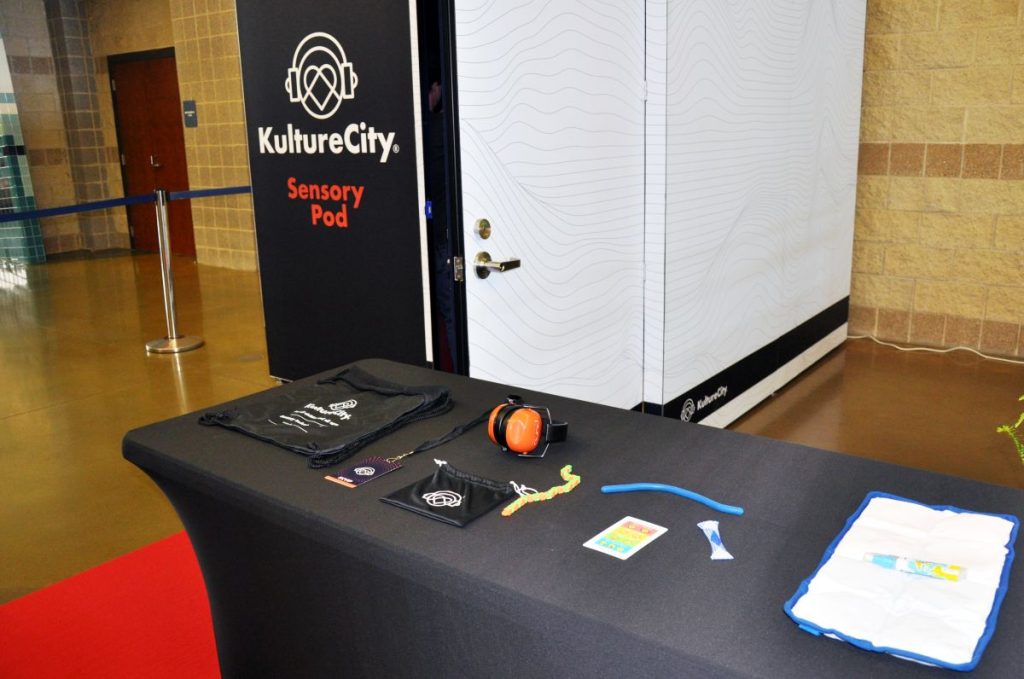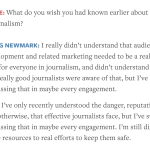Culture
Birmingham CrossPlex Introduces Alabama’s First KultureCity Sensory Pod

Donate today to help Birmingham stay informed.
The Birmingham CrossPlex hosted a ribbon-cutting ceremony Thursday to mark installation of Alabama’s first KultureCity sensory pod, a quiet space aimed at providing a calming environment for individuals with autism, ADHD, dementia, PTSD and other sensory-processing disorders.
For children and adults with sensory-processing differences, noise, crowds, bright lights and smells can be overwhelming and even physically painful.
Allie Imaghodor, who spoke at the ceremony and has a 10-year-old son with autism, said the sensory pod will benefit not only him but her entire family, which often can’t attend events such as athletic competitions at the Birmingham CrossPlex because she or her husband have to stay home with their child.
“Sitting down at an event isn’t always the best place for him,” Imaghodor said of her son, adding that he likes to be moving and touching things. “So being able to have that pod for him to go in and fidget and stim and do anything he needs to do, but then also calm down if he just gets too overwhelmed, because that happens, too. … That’s just really a peace that’s kind of hard to describe.”
The pod features soft seating, low lighting and tactile elements such as a maze and a puzzle hanging on the walls. KultureCity, a Birmingham-based nonprofit with national reach, describes the space as a refuge for the one in four individuals who experience sensory needs, whether due to sensory overload, anxiety or simply requiring a moment to reset.

Physicians Julian Maha and Michele Kong founded KultureCity in 2013, inspired by their personal experiences, including as parents of a neurodivergent child. The organization’s services, products and initiatives include sensory bags filled with noise-canceling headphones and tactile objects, as well as its Sensory Inclusive certification that trains staff and provides sensory bags at more than 3,000 locations, sensory rooms, mobile sensory stations and sensory activation vehicles.
Because the Birmingham CrossPlex — a multi-purpose athletic facility that also hosts job fairs, graduations and community events — didn’t have space for a sensory room, locating a pod in the facility’s lobby was the best option, Maha said. While the pod is the first in Alabama, it’s one of 11 across the country.
Maha said KultureCity built the first one a year and a half ago for the Crypto.com Arena in Los Angeles, at the suggestion of Los Angeles Lakers basketball player LeBron James. James was playing for the Cleveland Cavaliers when KultureCity built its first public-facing sensory space in Cleveland, and he loved it, Maha said.
“When he went over to the Lakers, he said, “We need to get this,’” Maha continued. “Crypto.com (Arena) is a partner, but they’re very tight on space. So we designed this for Crypto.com not realizing that a lot of other spaces would want it.”
JFK Airport now has a pod, LaGuardia Airport will soon have one, and Maha said KultureCity would like to install a pod on the Southwest and American Airlines side of Birmingham’s Fred Shuttlesworth International Airport, to accompany the existing sensory room on the Delta side.
The Jefferson County Commission financially supported the pod at the CrossPlex and has provided grants to KultureCity. Three county commissioners, along with other local officials including Birmingham Mayor Randall Woodfin, CrossPlex staff and community advocates attended the ribbon cutting. Several spoke about the importance of creating spaces where all people can enjoy public events and facilities.
Commissioner Lashunda Scales told the audience she’s decided to expand sensory accessibility in her district.
“I am committing myself and funds from my district, after what I saw today, to doing several of these because I like what I saw,” Scales said. “As a commission, we have been so proud of the work that KultureCity has brought into our area and our county. I want to see more of that, especially in underserved communities where resources are very limited.”
Scales said she would pursue both stationary and mobile sensory units, with an initial goal of two units followed by more, if affordable.
“I’m looking at how we can take mobile units and share those units with multiple cities, even if it means that it’s being used in one area for a certain period of time, and then we would continue to move throughout the district,” she said. “The main thing is giving everyone an opportunity to have this kind of experience.”
Before the event, Charlicia Heard, a payroll specialist and United Ability liaison for the Birmingham CrossPlex, introduced the pod to three United Ability team members who assist with events at the venue. United Ability serves individuals with disabilities, and its team members support the CrossPlex by greeting guests and helping with event planning, setup and breakdown.
“Sometimes during our events, it may get pretty loud and it may have a lot of traffic,” Heard said. “So with anxiety and things like that and noise control, I think just having that space for them to go in and calm down and come back out and kind of reset — it’ll be very useful for them.”

United Ability team members Christina Killian, Moneka Smith and Jim Kimbrough appeared excited as they tried out the pod, sitting on a bean bag chair and interacting with other elements. Kimbrough said a light board is his favorite feature, and Killian mentioned a puzzle.
When Heard asked Smith what her favorite part of the pod is, she enthusiastically stated, “all of it.”
Heard said the Birmingham CrossPlex intends for the pod to be accessible to anyone within the facility, including employees and spectators, who may require a quieter space, regardless of disability status.
CrossPlex interim Director Christy Mixson said the facility doesn’t serve only Birmingham.
“Thousands of athletes, families and visitors come through our doors each year,” she said. “With the sensory pod, we are ensuring that individuals of all abilities can enjoy these events fully. This partnership also reflects the heart of our city. Birmingham has always been a place where change begins, where people come together, champion fairness and justice. Today’s milestone builds on that legacy by ensuring accessibility and inclusion are not afterthoughts but priorities.”
For about a year, the CrossPlex has offered KultureCity sensory bags, and all CrossPlex employees are participating in KultureCity training to improve their ability to interact with individuals needing sensory support, Heard said.
KultureCity’s footprint in Birmingham also includes sensory rooms at Boutwell Auditorium, the Birmingham Jefferson Convention Center and Protective Stadium as well as quiet zones, sensory bags and trained staff at the Coca-Cola Amphitheater.
Maha also highlighted KultureCity’s successful advocacy for two Alabama bills that became law in 2024 and 2025 and mandate that every first responder be trained in serving people with invisible disabilities. Using a virtual learning management system, KultureCity has already provided that training, Maha said.



